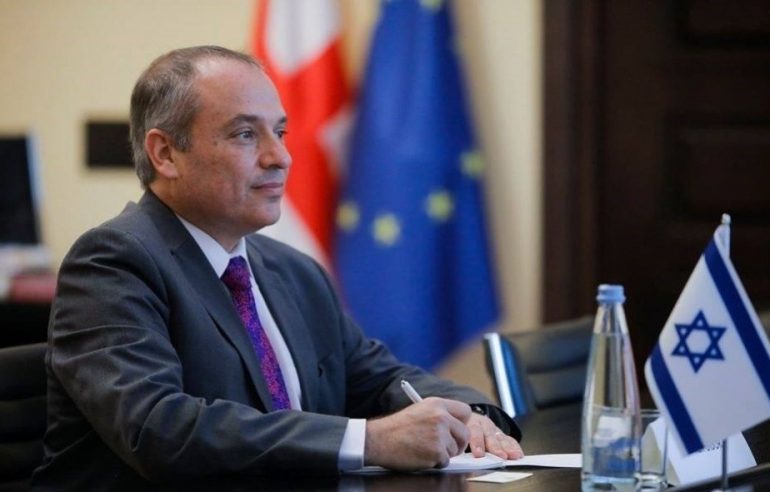This July, the UN released its annual report on the implementation of the Sustainable Development Goals – SDGs for 2020. This report comes amid the blow the coronavirus has delivered on the implementation of virtually every of the 17 goals and 169 targets the international community hopes to achieve by 2030. The report goes on to state that the weakest groups are the most affected, such as developing countries, children, women, the elderly, the disabled, the poor, immigrants and refugees and more.
In addition, the main goals of eradicating poverty and hunger have worsened severely and 71 million people are expected to join the circle of acute hunger. The extremely high number of fatalities caused by the pandemic is expected to be joined by many thousands more who will die of starvation, medical complications, lack of vaccines and poor sanitation.
Accompanying these figures is the chilling fact that around 1.6 billion people, or half of the global labor force, have either lost their livelihoods or are experiencing a decline in their employment and incomes. School closures have removed an additional 1.6 billion students from their educational settings and an estimated 370 million have stopped receiving meals in schools. Violence against women, children and the weaker sectors has increased while the circles of poverty and hunger expanded as well.
In Georgia, too, the situation is far from ideal. According to Kakha Kakhishvili, Head of the Government Administration and Chairman of the National SDG Council, and Louisa Vinton, UNDP Resident Representative, whereas Georgia was a pioneer in translating the SDG framework into national strategies and in establishing a structure for SDG implementation – there are still considerable ‘bottlenecks’ which slowing down the pace of progress. Even before the Corona-crisis, the UNDP pointed (press release of 8th May 2009) to the fact that some priority areas are much better funded than others. For example: peace (#16), education (#4) and infrastructure (#9) have generous budgets, whereas poverty (#1), gender equality (#5) and environmental protection and climate change (#6, 12, 13, 14 and 15) are significantly less well-funded.
It is precisely because of the aforementioned alarming data that we need to make every effort to integrate the sustainable development goals in all our activities, and in every economic rescue package or plan for increasing resilience. We must remember that we live in a global world and as the coronavirus has shown, problems tend to move from country to country and region to region. Hence it is upon all of us, all over the world, to mobilize for the implementation of the SDGS. These days, more than any other time, they are our compass. They show us the correct path. They are the pillar of smoke that goes before the camp in the desert by day and the pillar of fire by night. They are the flag in front of the camp in the confusion created by the pandemic and the economic-humanitarian crises accompanying it.
Each country needs to examine how it can contribute to the implementation of the goals and in Israel can help with experience and technology that can be used by many across the world in areas such as public health, water, agriculture and renewable energy to implement the goals of eradicating poverty and hunger, food security and healthy nutrition, bringing energy available to all, and clean drinking water. Israel’s world-renowned innovation actually can help achieve most of the 17 goals.
This can be illustrated during the second wave of corona in Israel that has led to a new Israeli development by Virimask – a face mask that provides full respiratory protection to teams at the forefront of the fight against the virus. Laboratory tests conducted by the company have found that it provides more than 99 percent protection against the corona virus. Compared to the N95 mask used today by medical teams and which transfers up to about five percent of the particles. The mask also prevents floating sprays from reaching the eyes, unlike the N95 which provides protection for the nose and mouth only. In addition, the Virimask allows comfortable airflow for its users and they do not suffer from symptoms like headaches, shortness of breath and nausea.
In Israel, due to its location on the edge of the desert and the circumstances of its establishment and existence, and as a country where innovation, initiative and creativity abound, countless solutions have been formulated and developed in regards to the environment that can be shared with the whole world. Israel’s world renowned agriculture can provide a significant part of the solutions needed to feed the world’s population that while constantly growing, has its food supply threatened by the climate crisis, water scarcity and desertification. Examples included precise agriculture, the development of varieties resistant to diseases and droughts, the use of brackish water and more.
Water is another area in which Israel is a global leader, and if we knew how to leverage it better, it could bring healing to many global harms and advance the global economy. In sewage treatment, Israel is a super power, as almost 90% of its wastewater is treated and used for agriculture. Now think how many greenhouse gases, environmental pollution and destruction of natural systems would have been avoided if this was the situation worldwide.
Israel is also highly experienced in the use of technologies for renewable energy. This includes producing energy by using sea waves. Eco Power, an Israeli company currently developing this technology, won an award at last year’s Climate Change Conference in Madrid. Other Israeli companies are leaders in the fields of energy efficiency and energy storage solutions, such as storing energy by using compressed air systems.
There are also companies in Israel that are pioneers in the field of developing animal protein substitutes, such as cultured meat grown under laboratory conditions, plant protein that mimics meat or chicken at the highest level, or proteins produced by the fermentation. Understanding the huge impact of the livestock industry on the climate crisis, and at the same time how the global expectation of a significant increase in consumption of meat and animal based foods will further exacerbate the problem, we understand that such developments have a major contribution to quality protein supply worldwide.
Other developments come from the worlds of innovation, applications, artificial intelligence, material recycling, the development and use of industrial materials that require less energy in the manufacturing process and more.
Israel and Georgia are already cooperating extensively in several of these priority areas – both on private and governmental levels (the latter is led primarily by MASHAV – Israel’s International Development Cooperation Agency, which has been operating in Georgia since 1993). Food security, clean water, public health, renewable energy, quality education, gender equality and innovation – have all been focal points of Israeli-Georgian bilateral cooperation. Last month, for example, MASHAV has developed jointly with the Guria ‘Shalom Club’ a concept for equipping rural schools with Israeli-made water purification units. This week, MASHAV announced yet another project, jointly with the Georgian ‘Volunteer Hub’ focusing on ‘Women in Tech’. We are currently exploring a range of other initiatives – all prioritized within the national Georgian strategy for implementation of SDGs.
Goal # 17 is highly important today. It is about cooperation. Without joint work, an understanding that the challenges are global and that the way out of the coronavirus is through international cooperation, we will not succeed properly and perhaps not exit the crisis at all. And as the UN report states, solidarity and cooperation are necessary to address and prevent the health-economic-humanitarian crisis. Therefore, today, in a time of global crisis, it is important that we adhere to these global goals and make every effort to accomplish them. They are our vision for a better and safer world. “
"Forbes Georgia-ის სარედაქციო ბლოგპოსტების სერია "როგორ გამდიდრდა“ და "საქართველო რეიტინგებში".














